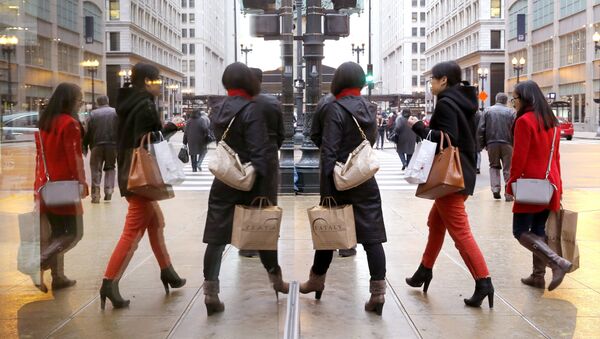Unbeknownst to customers, music may alter their buying behaviour, making the overall experience all the more positive or potentially spurring one's consumer instincts, a tool which sellers are too happy to exploit.
The right music style correctly reflecting the image of the venue, coupled with fitting volume and pace can make you either buy more or eat slower, Pernille Andersson, assistant professor in psychology at Karlstad University, told Finnish broadcaster Yle.
The common stereotype is that background ambient music, also known as muzak, somehow lulls customers, making them buy stuff they don't necessarily need. However, simply having the radio on won't automatically help a store sell more.
"Instead of creating a more comfortable environment, wrong music can create a less comfortable environment. This can lead to fewer purchases", Pernille Andersson said.
According to Pernille Andersson, classical music is often subconsciously associated with good quality, the finer things in life, and is often preferred to popular music with an underlying idea. Customers in a store where classical music is played are likely to assume that the products sold are expensive and classy. However, simply playing classical music in a thrift store won't automatically convince everyone of the quality of the goods being sold.
"Then, there will be a conflict between our visual impressions and the music being played", Andersson explained.
READ MORE: Soothe a Savage Breast: Study Finds Music Helps Treat Depression
However, Andersson also stressed that many clothing stores prefer to play more contemporary music as they want to be associated with a hipper and trendier crowd, citing Dressman clothing chain's collaboration with the Rolling Stones to signal a more fashionable image.
According to Andersson, the tempo of the music is also crucial, as it paces the customer accordingly to the seller's wishes. For instance, fast-pace music makes one move more quickly through the store, which may come useful during rush hour. In a restaurant, up-tempo music makes customers eat faster, allowing it to serve more customers in the same amount of time. By contrast, slower music may spur customers into ordering an extra piece of dessert.
Arguably the most remarkable trait of background music is that it influences the customers' decisions without drawing their attention. Andersson cited a survey, in which customers at a wine store bought more German or French wines depending on whether German or French music was played. When asked whether their choice was somehow affected by the music played, they said no.
READ MORE: Reinventing the G-String: Swedes Investigate Erotic Vibe in Classical Music
Andersson specialises on ambient conditions on customer's behaviour in a retail context, more specifically investigating the effect of music on creating value for both consumers and companies. She is the co-author of several publications on this issue.




